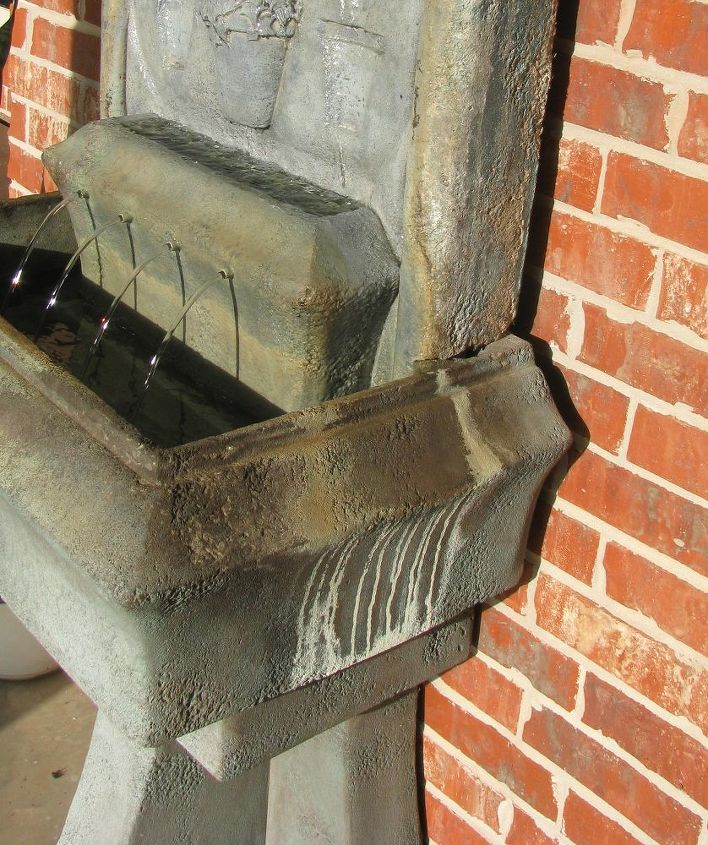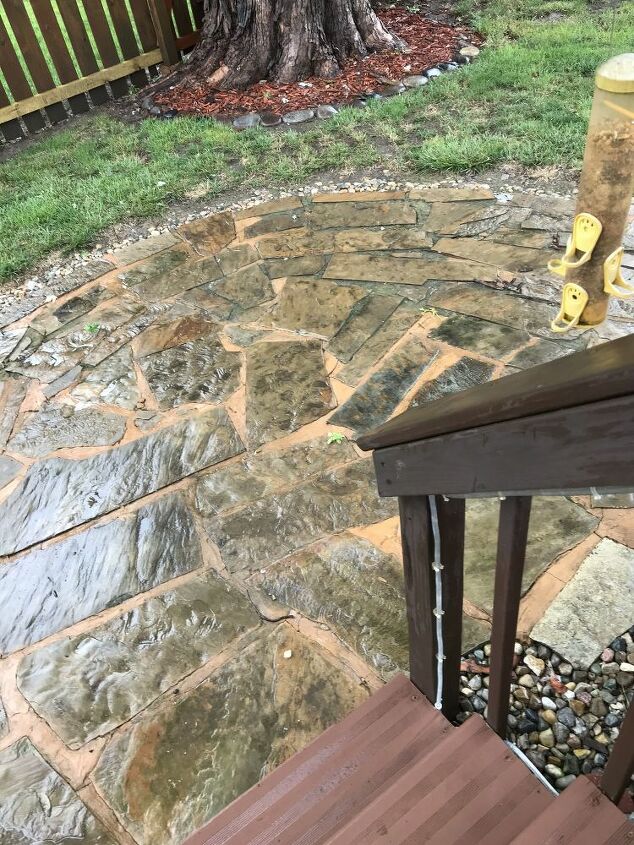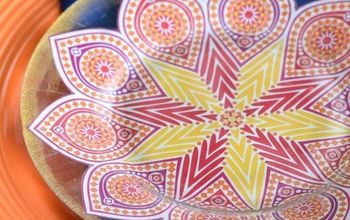How do I repair the finish on my fountain?
My fountain has some discolorations in some areas and other areas where the finish has worn away. I was thinking that painting it might be the way to spruce it up. Is that recommended? And if so, how do I go about it?
Related Discussions
Vinyl plank flooring vs pergo (laminate)
I currently have stinky dirty carpeting in my living room and I want to replace it with a durable flooring that can stand up to dogs and kids.
How to remove popcorn ceiling that has been painted?
Does having a paint over a popcorn ceiling change how I'd remove the popcorn ceiling?
How to apply peel and stick wallpaper?
I want to spruce up my walls with peel-and-stick wallpaper. Has anyone used this before and can advise me as to how to apply it properly?
How to stain wood floor?
I've heard staining is a good technique for updating floors. So how do I stain my wood floor?
How can I update my brick porch and diagonal column?
I don't like the porch/column on my 70's built ranch that we just moved into last summer. Any suggestions to update it?
How can I redo my stone patio as simply a possible?
Should I remove grout? A way to put polymeric sand on top? I’m a novice (obviously) and I just want to try to repair without starting over!Jennifer




I think it's lovely the way it is. Like patina on an antique, I wouldn't do anything to it.
Some of it is calcium deposits from the hard water. You could try scrubbing it with vinegar to loosen the part that is real white, otherwise I think that it looks great the way it is!
You can clean off some with any household cleaner but don't remove everything. It looks great with some patina, age, and use.
use CLR but in an inconspicuous area first to see if it discolours it
Paint may not be a good idea. Concrete and other ceramic items absorb water. If you were to paint a basement floor with concrete paint it might turn out great. But if your basement is damp, the paint will start peeling. Unless your fountain is plastic, it is as wet as it gets.
The first thing you should do is clean the fountain. Clean the pump and any filter with a mild detergent, then rinse well. A soft scrub brush or sponge, and vinegar or CLR should remove the hard water (white) stain. Other stain is probably algae. That your fountain is in the shade helps prevent algae growth, but it doesn't stop it. And, while bleach can lighten the algae stain, but bleach won't kill the algae.
To prevent hard water stains it is best to refill your fountain with distilled water (not drinking or spring water). At my grocery store distilled water is less than $1 a gallon. Add more distilled water whenever evaporation requires it. To prevent algae growth it's best to use a product that retards it. Most local pet stores will have products to control algae in ponds, and most of these are safe for children, pets and wildlife, but read the label to make sure. A small bottle will treat a lot of water.